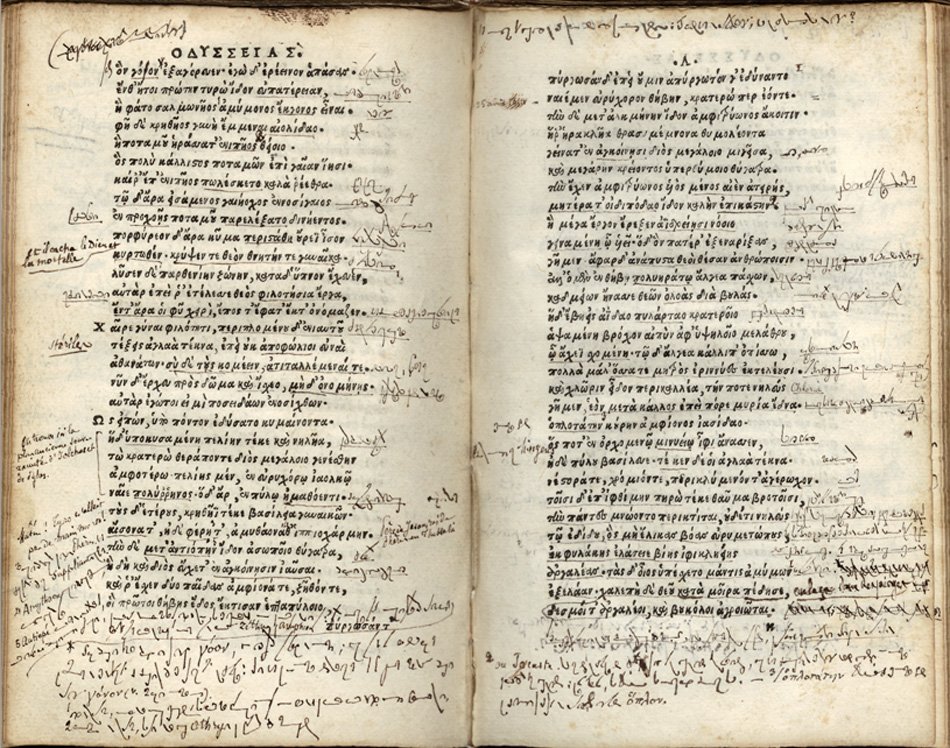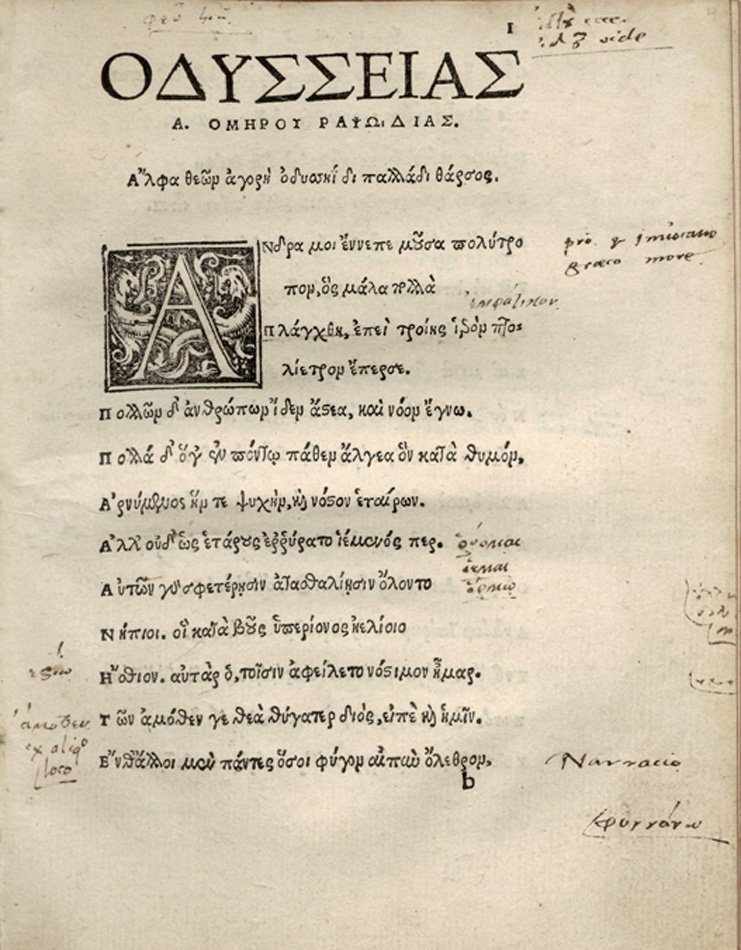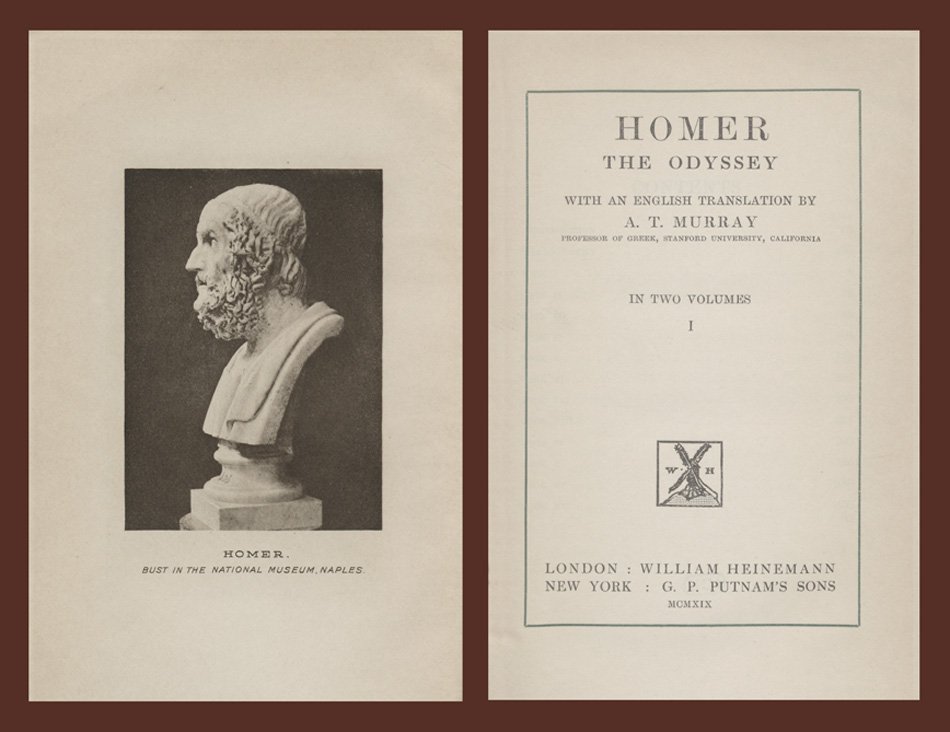Humanists, Scholars, & Students
Printed editions of the classics in Greek were scarce in the fifteenth century: Greek type fonts were expensive and difficult to produce, and demand was low because knowledge of Greek was limited. With the influx of Byzantine refugees to Italy after the fall of Constantinople in 1453, and the corresponding rise of Venice as a printing center, several humanists sought to make Greek books more available. The Venetian scholar-printer Aldus Manutius devoted his life to promoting study of the classics and produced a series of affordable, influential editions in Greek.
The audience for Homer expanded with editions aimed at scholars who did not know Greek. King Alfonso V of Aragon commissioned classical scholar Lorenzo Valla to produce a prose Latin translation of the Iliad in the 1440s that was first printed in 1474. The first edition specifically designed as a schoolbook appeared in 1520, with wide margins and generous spacing between the lines for notes. The 1561 bilingual edition prepared by Nicholas Brylinger and Sébastien Castellion was intended for educational purposes and included parallel Greek and Latin texts.
During the nineteenth century, a host of English translations appeared for the use of students. James Joyce read Butcher and Lang's prose translation of the Odyssey when he was writing Ulysses. Thomas Clark's interlinear edition is based on the "Hamilton system," which places the English words directly below the Greek, requiring substantial rearrangement and symbols to guide the reader. Although 400 years separate Aldus Manutius and James Loeb, who launched the Loeb Classical Library with facing Greek and Latin texts in 1911, they shared the goal of reviving interest in the classics by producing convenient and accessible editions.
'Oμήρου 'Iλιάς, Όδύσσεια. βατραχομυομαχία. ὕμνοι. λβ = Homeri Ilias, Vlyssea. . . .
Venice: Aldus, 1504.
This two-volume edition of Homer is the second Greek edition to be printed and the first of three from the Aldine Press. The text largely reproduces that of the 1488 editio princeps, or first printed edition (shown in a separate case), although it corrects many errors in the earlier work. Both volumes contain annotations in various older hands. The ones in volume two, shown here, are in French, Greek, and an as yet unidentified script.
BHL A2
'Oμήρου Όδυσσείας βίβλοι Α. καὶ Β. = Homeri Vlysseae. . . .
Basel: Ex aedibus Andreae Cratandri, 1520.
Only the first two books are included in this first separate printing of the Odyssey in Greek. In his preface Andreas Cratander, a Basel printer and bookseller, calls attention to features of the text that are designed with students in mind: it is a manageable size, has been set with generous interlinear spacing so that students can easily take notes on prosody, and has generous margins for additional note-taking.
BHL A4
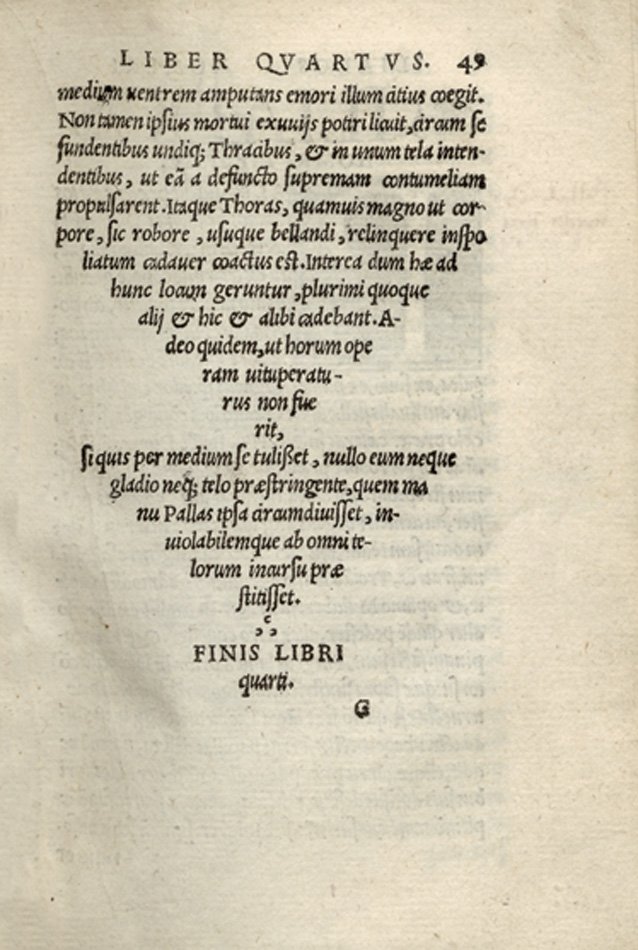
Homeri Poetae Clarissimi Ilias per Laurentium Vallensem Romanum Latina Facta
Cologne: Apud Heronem Alopecium, 1522
Italian Renaissance humanist scholar Lorenzo Valla produced a paraphrase of the first sixteen books of the Iliad in very elegant Latin prose in the 1440s, leaving the task of translating the remainder to Francesco Griffolini, one of his pupils.
BHL C1
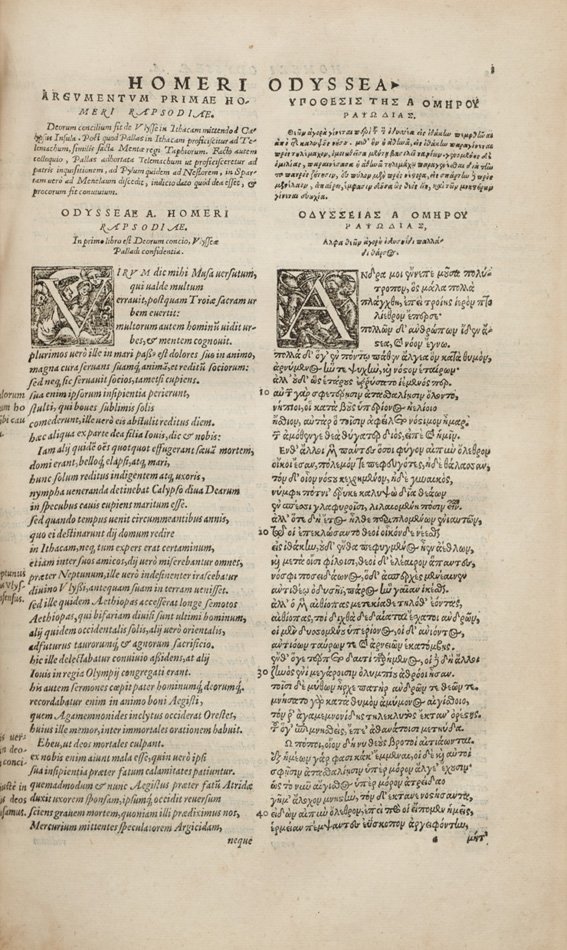
Homeri opera graeco-latina, quae quidem nunc extant, omnia. Hoc est: Ilias, Odyssea, Batrachomyomachia, et Hymni. . . .
Basel: Per Nicolaum Brylingerum, 1561.
This copy has several handwritten notes in Latin and Greek on the preliminary pages and title page. They include quotes from Lactantius, Plato, and Augustine about Homer. One note on the front inside cover quotes a sentence from Lactantius, Divine Institutes 1.5: "Homer could give nothing to us that pertains to the truth, since he wrote of human rather than divine things." This would please Castellion, the editor, a scholar and Protestant theologian who warned readers in his preface not to elevate Homer's and other human works above the far more important sacred writings.
BHL A13
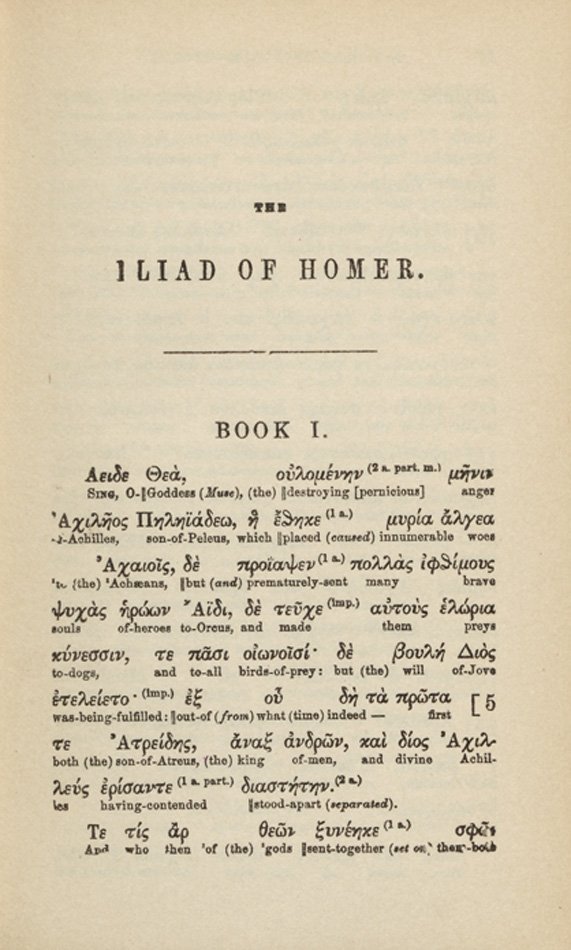
The Iliad of Homer with an Interlinear Translation, for the Use of Schools and Private Learners, on the Hamiltonian System, as Improved by Thomas Clark
Philadelphia: David McKay, Publisher, 1888. Hamilton, Locke and Clark Series.
Sing, O - || Goddess (Muse), (the) || destroying [pernicious] anger
of-Achilles, son-of-Peleus, which || placed [caused] innumerable woes
¹to (the) ¹Achæans
The Greek text had to be significantly rearranged to accommodate the Hamiltonian system, and symbols were necessary to guide the reader through the translation: multiple English words that express the meaning of one Greek word are connected by a dash (with "¹" before each of them when they are separated), English words not in the Greek are in parentheses, and substitutes for English words are in brackets ("||" marks where each substitution begins).
BHL B91
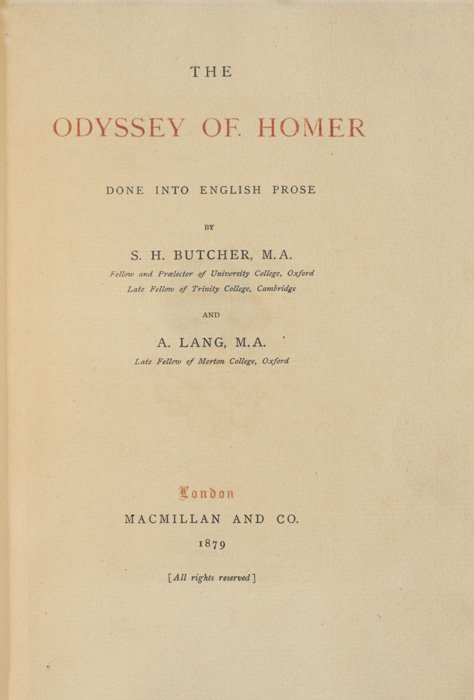
The Odyssey of Homer Done into English Prose
London: Macmillan and Co., 1879.
Tell me, Muse, of that man, of many a shift, who wandered
far and wide, after he had sacked the sacred citadel of Troy
This highly-praised prose translation of the Odyssey by professor and classicist Samuel Henry Butcher and poet, anthropologist, and classicist Andrew Lang was an immediate and lasting success. A second edition was published within a year and it was reprinted many times through the late twentieth century.
BHL B55
The Odyssey. . . .
London: William Heinemann; New York: G. P. Putnam's Sons, 1919. Loeb Classical Library.
Tell me, O Muse, of the man of many devices, who wandered
full many ways after he had sacked the sacred citadel of Troy.
The Loeb Classical Library, a series of classical translations with facing Greek and Latin texts founded by James Loeb in 1911, aimed to revive interest in the classics in "an age when the humanities are being neglected more perhaps than at any other time since the Middle Ages and when men's minds are turning more than ever before to the practical and the material." TheClassical Journal wrote that "It will give the greatest impetus ... to classical interests since the invention of printing and the spreading broadcast of classical texts in the late years of the fifteenth century."
BHL B64
